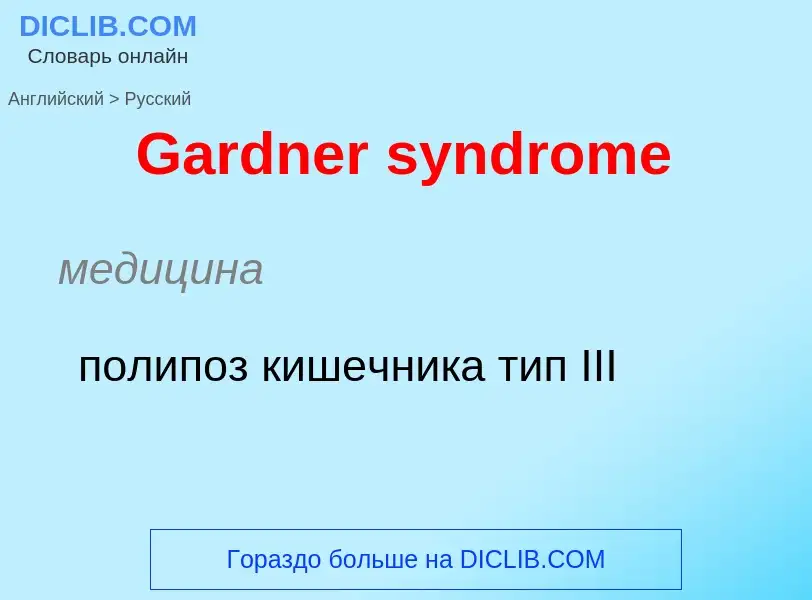Перевод и анализ слов искусственным интеллектом ChatGPT
На этой странице Вы можете получить подробный анализ слова или словосочетания, произведенный с помощью лучшей на сегодняшний день технологии искусственного интеллекта:
- как употребляется слово
- частота употребления
- используется оно чаще в устной или письменной речи
- варианты перевода слова
- примеры употребления (несколько фраз с переводом)
- этимология
Gardner syndrome - перевод на русский
медицина
полипоз кишечника тип III
медицина
аутоэритроцитарная сенсибилизация
медицина
гипофизарный евнухоидизм
адипозогенитальная дистрофия
гипофизарное ожирение
Определение
Википедия

Gardner's syndrome (also known as Gardner syndrome, familial polyposis of the colon, or familial colorectal polyposis) is a subtype of familial adenomatous polyposis (FAP). Gardner syndrome is an autosomal dominant form of polyposis characterized by the presence of multiple polyps in the colon together with tumors outside the colon. The extracolonic tumors may include osteomas of the skull, thyroid cancer, epidermoid cysts, fibromas, as well as the occurrence of desmoid tumors in approximately 15% of affected individuals.
Desmoid tumors are fibrous tumors that usually occur in the tissue covering the intestines and may be provoked by surgery to remove the colon. The countless polyps in the colon predispose to the development of colon cancer; if the colon is not removed, the chance of colon cancer is considered to be very significant. Polyps may also grow in the stomach, duodenum, spleen, kidneys, liver, mesentery, and small bowel. In a small number of cases, polyps have also appeared in the cerebellum. Cancers related to Gardner syndrome commonly appear in the thyroid, liver and kidneys. The number of polyps increases with age, and hundreds to thousands of polyps can develop in the colon.
The syndrome was first described in 1951. There is no cure at this time, and in its more advanced forms, it is considered a terminal diagnosis with a life expectancy of 35–45 years; treatments are surgery and palliative care, although some chemotherapy has been tried with limited success.



